UN human rights chief warns about Trump's immigration policies
The United Nations High Commissioner for Human Rights has warned that US President Donald Trump's immigration policies could lead to mass detentions and “collective expulsions” of migrants, amounting to a “breach of international law.”
In an annual speech to the UN Human Rights Council in Geneva on Wednesday, Zeid Ra'ad Al Hussein said better leadership was needed to tackle rising discrimination against ethnic and religious minorities in the US, such as Muslims and Mexicans.
"Expedited deportations could amount to collective expulsions and refoulement, in breach of international law, if undertaken without due process guarantees, including individual assessment," Zeid said, referring to the UN Refugee Convention, which prohibits the forcible return of people who are escaping persecution, violence and war.
"Vilification of entire groups such as Mexicans and Muslims, and false claims that migrants commit more crimes than US citizens, are harmful and fuel xenophobic abuses," he added.
The UN human rights chief also expressed concern about Trump’s new executive order announced Monday that bans the entry of people from six Muslim-majority countries for 90 days, after Trump's initial executive order on immigration was blocked be US federal courts.
He said the deportations will have greater impact on children "who face being detained, or may see their families torn apart."
Read More:
Zeid also condemned what he said were Trump’s attempts to "intimidate or undermine journalists and judges."
Trump built a base of support behind his presidential campaign by vowing to fight illegal immigration and prevent Muslims from entering the country.
Building a wall on the US-Mexico border to stop the influx of refugees and undocumented migrants coming from Central and Latin America was a hallmark of Trump's presidential campaign.
Since his inauguration, Trump has faced nearly non-stop protests and rallies condemning his divisive rhetoric and controversial immigration policy.
Trump's first month in office was dominated by a battle over his temporary travel ban on people from seven Muslim-majority countries and harsh personal criticism of federal judges who blocked his immigration order.
VIDEO | Former FBI agent criticizes US Congress for 'outright corruption'
IRGC chief urges Muslim countries to cut aid routes to Israel
'New chapter in cooperation': Iran, Venezuela sign new MoUs
Jordan sentences former lawmaker for supporting Palestinian resistance
Basij volunteer forces hold massive drills in southwestern Iran
Israeli war criminals 'not welcome', US city says after ICC ruling
US vetoing of Gaza ceasefire resolution ‘disgraceful’: Iran’s UN envoy
VIDEO | IAEA adopts anti-Iran resolution tabled by E3


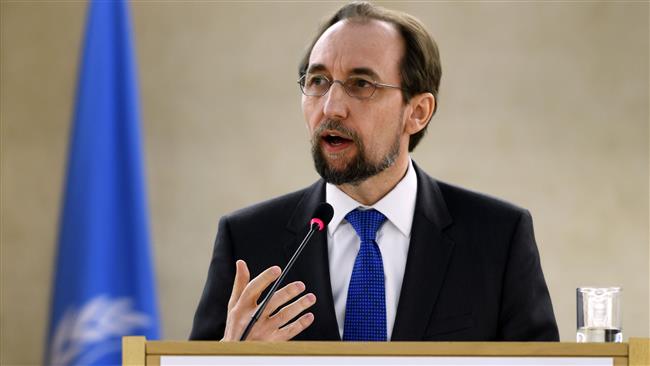
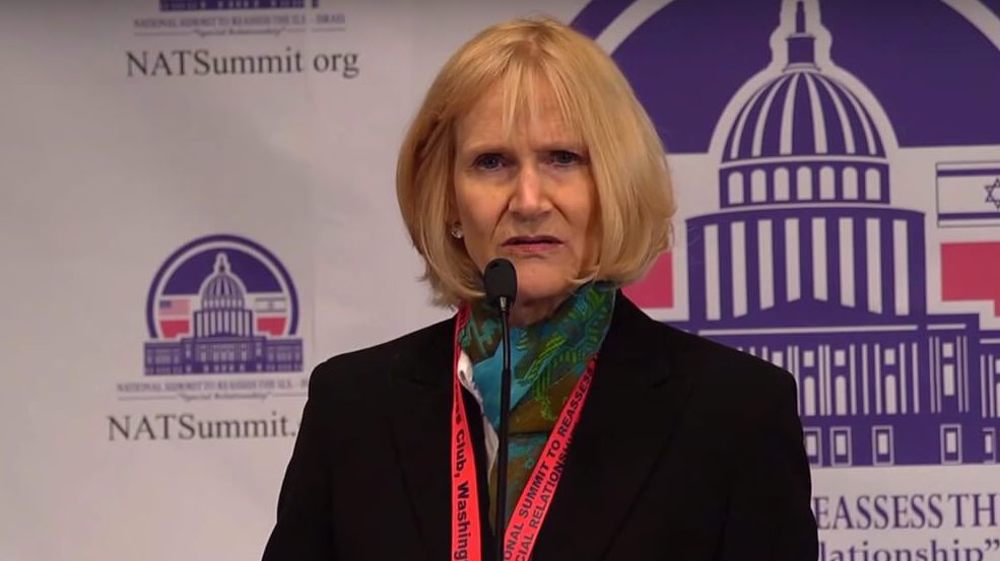
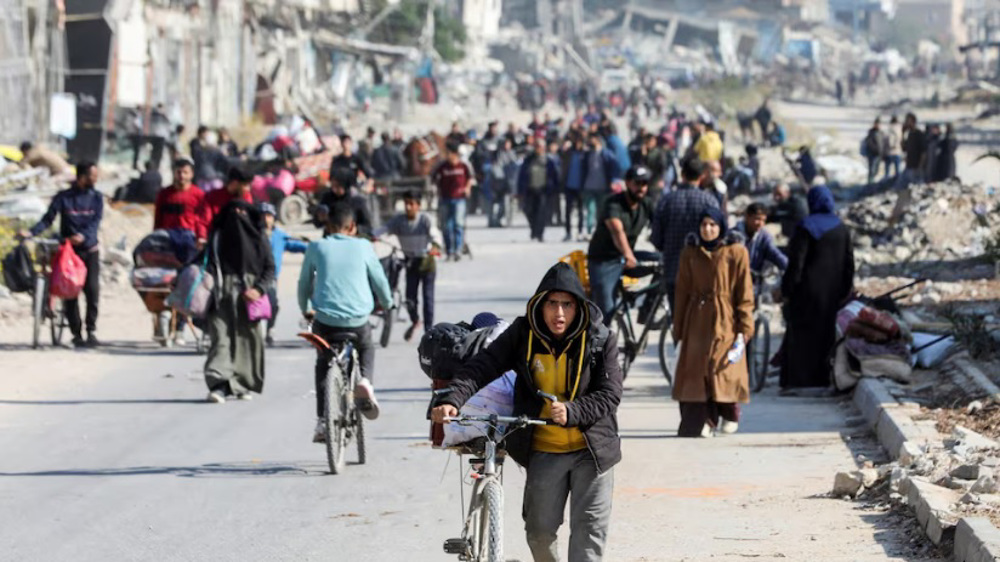
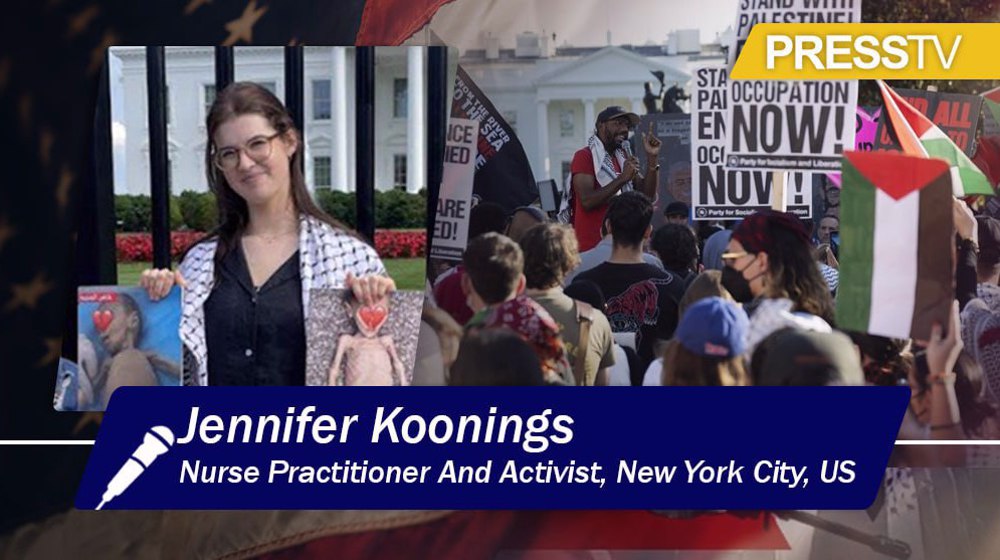



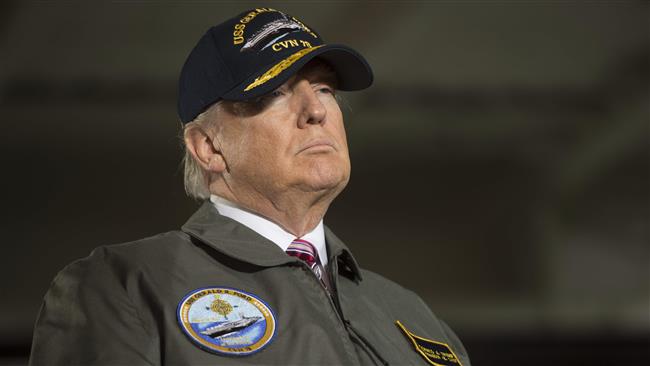
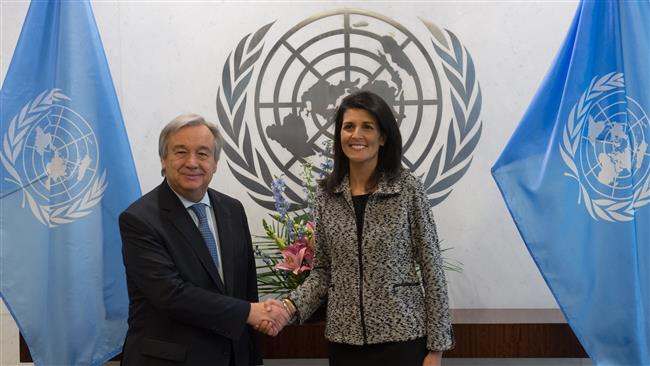


 This makes it easy to access the Press TV website
This makes it easy to access the Press TV website